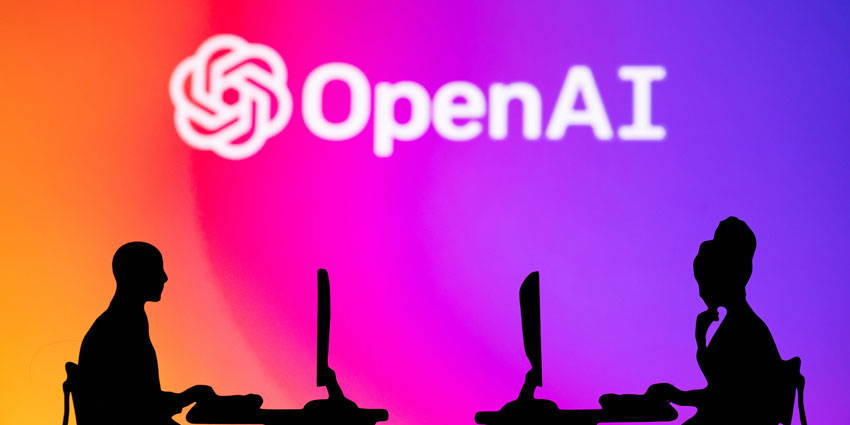Microsoft has announced a public preview of its agentic AI.
Announced at Microsoft Ignite 2024, the preview will allow customers to test pre-configured agents and envision how to build their own via Copilot Studio.
Microsoft’s autonomous agents combine different types of AI – including generative AI (GenAI) – to mechanize tasks without a human in the loop.
Copilot still acts as a virtual assistant. However, autonomous agents add another layer to that strategy, completing tasks with human oversight but without human input.
“We’re helping every organization scale that impact on ROI by transforming business processes with agents built-in Copilot Studio,” confirmed Frank X. Shaw, Chief Communications Officer at Microsoft.
“This means that over time, organizations will have a constellation of agents from simple, prompt and response to fully autonomous.”
He continued: “Whether it’s sourcing sales leads, handling customer service inquiries, or tracking project deadlines, agents can do a lot of the heavy lifting so people can focus on more strategic tasks.
It’s our vision to empower every employee with a copilot and a team of agents working with them and on their behalf.
As part of Microsoft’s vision, those autonomous agents may collaborate to automate more complex processes that cross departments.
To equip users with the tools necessary to build such flows, Microsoft plans to evolve Copilot Studio into a comprehensive agentic AI toolkit.
At Ignite, it shared several of the steps it has already taken to develop that toolkit.
The New Copilot Studio: Knowledge Improvements & Azure Integrations
First, Microsoft has added connectors to third-party CRM systems – including Salesforce, ServiceNow, and Zendesk – so autonomous agents can access new data sources.
Copilot Studio users can also leverage the latest GPT models, optimized Retrieval Augmented Generation (RAG) strategies, and advanced knowledge-tuning capabilities.
Those knowledge-tuning capabilities support use cases like a service agent autonomously handling customer contacts. How? By spotlighting the knowledge sources the agent is using, identifying improvement opportunities within them, and isolating which user questions remain unanswered.
Moreover, Microsoft now enables companies with large data stores in Azure to use those as a base to ground their agents and optimize performance.
As the final Azure-related addition, the tech juggernaut is making its Azure AI model catalog – which includes 1,800+ AI models – available inside Copilot Studio. There, companies can customize and finetune many of these models to again enhance the performance of autonomous agents.
Summarizing the evolution of Copilot Studio, Martin Schneider, VP & Principal Analyst at Constellation Research, stated: “As Microsoft and other similar providers continue with such a rapid pace of AI innovation, users need a centralized console to get a better handle on the latest AI features, but also a place to better manage which AI tools they are currently using.
Copilot Studio offers not just a more user-friendly interface for creating AI-powered experiences, it also enables users to better monitor, maintain, and optimize various AI use cases in a more safe, secure and centralized manner.
However, Microsoft didn’t just stop at adding knowledge improvements and Azure AI integrations…
The New Copilot Studio: Enabling Multi-Modal, Analytical, & Everywhere Agents
One fascinating addition to Copilot Studio is the ability to build agents that augment voice applications, like a contact center IVR.
As such, users can develop agents that autonomously serve customers over voice. However, a service team may also create an agent that gathers customer information before a live agent interaction. Both agents may have their places.
Yet, it’s not just voice. Brands can build multi-modal agents that can analyze images and answer questions about them. Again, that could bolster customer service agents.
For instance, consider a bot designed to handle billing queries. This could allow customers to upload a digital copy of their bill. From there, the agent could scan it, reflect on the company’s billing guidelines, and answer their questions.
Nevertheless, the possibilities expand beyond the confines of customer support. For example, Microsoft shares an example of a sales team creating a bot that adds hand-written notes to the CRM, simplifying the process of logging data.
Aside from this essential multi-modal capability, Microsoft has added the ability to attach metrics to autonomous agents for human oversight. These include satisfaction scores and engagement rates for customer-facing agents.
Meanwhile, Microsoft has made an SDK available to developers who wish to customize their agents beyond what’s possible via the no-code agent builder in Copilot Studio.
One exciting possibility this brings is to deploy agents beyond the Microsoft ecosystem and into third-party messaging platforms – including Slack, Messenger, and WhatsApp.
While Microsoft has not confirmed its intention, expect the possibilities for deploying Microsoft agents across third-party solutions to expand in 2025.
Lastly, the tech giant promises that all its autonomous agents will come with guardrails and controls, including data loss prevention, encryption, and a “responsible AI strategy.”
The Pre-configured Autonomous Agents: What’s Available?
Microsoft previously teased ten pre-configured autonomous agents that will be available to embed across Dynamics 365. These target service, sales, finance, and supply chain teams.
Of these, the service Customer Intent and Customer Knowledge Management Agents are particularly notable as they can work hand-in-hand.
Indeed, the Customer Intent Agent studies how live agents resolve particular queries. The Customer Knowledge Management Agent then takes that info to draft content for a knowledge base.
That content could then feed a customer-facing autonomous agent, extending the collaboration.
Yet, Schneider shared his excitement about seeing Microsoft’s agents stretch further into its ERP applications. In another conversation with CX Today, he noted:
ERP data management is crucial; unlike CRM data, where inaccuracies may have delayed impacts, poor-quality ERP data can lead to immediate and serious consequences, even impacting legal or regulatory outcomes.
“This agentic AI application within ERP systems is showing promise for both employee and customer experience enhancements,” he summarized.
One ERP and CRM vendor that could challenge Microsoft here is SAP, which similarly expanded its Joule virtual assistant to include agentic AI last month.
So, while the talk of the autonomous agent town has centered on Microsoft’s rivalry with Salesforce, its journey perhaps better aligns with that of SAP, as well as Oracle.







